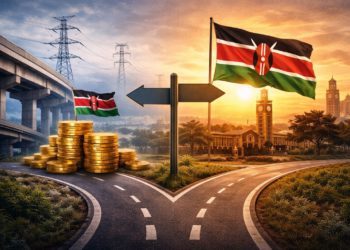Kenya has long been regarded as East Africa’s economic and logistic hub, now finds itself at the centre of a growing illicit gold trade that threatens both national and regional stability. Smugglers are increasingly using Kenya as a transit point for gold illegally mined in the Democratic Republic of Congo and Sudan, countries where gold mining has often fueled armed conflict, human rights abuse and economic exploitation. Despite national efforts to position itself as a legitimate player in global trade, Kenya’s weak borders, weak enforcement mechanisms, and institutional corruption have made it a critical link in a dangerous underground network.
Gold mined in conflict zones such as Democratic Republic of Congo enters Kenya through unregulated border crossings in counties like Turkana. Once inside, the gold is typically laundered through dealers, moved through Nairobi, and then exported to global trading centres, such as the United Arab Emirates. These operations are not small-scale. Smugglers are supported by sophisticated networks that include rogue customs officials and corrupt law enforcement. The result is a multi-billion-shilling black market that not only defrauds the state but also undermines regional peacebuilding efforts.
In the context of illegal gold trade, it is important for Kenya to strive to strengthen its borders. Failure to do so, this may lead to increased revenue loss where the government loses a lot of money in form of unpaid custom taxes due to untracked shipments. Second, increased national security threats, where gold smuggling routes overlap with arms and human trafficking corridors, heightening Kenya’s vulnerability to organized crime and terrorism. Kenya may also be at a high risk of being viewed as a conduit for conflict minerals. This may eventually lead to sanctions, trade restrictions, and loss of investor confidence hence reputational damage.
To prevent the adverse consequences, Kenya should come up with strategies such as investing in border infrastructure and surveillance. This can be achieved by modern border checkpoints, scanners, and biometric identification systems which will limit smuggling through official points while deterring informal crossings. Second, empowering anti-corruption units. Strengthening and insulating bodies like the Ethics and Anti-Corruption Commission from political influence is essential to investigating collusion at border points. Third, regulating and monitoring gold traders. All gold dealers and exporters should be registered, audited, and subjected to Know-Your-Customer standards to ensure traceability of all transactions. Engaging the international community where Kenya can work with bodies like the Financial Action Task Force to certify legal gold and crack down on suspicious shipments.
With the right reforms and a commitment to transparent governance, Kenya can break the cycle of illicit Gold trade that currently undermines both its economy and regional security. By closing its borders to smugglers, Kenya opens new opportunities for ethical trade, regional peace, and sustainable economic development.














